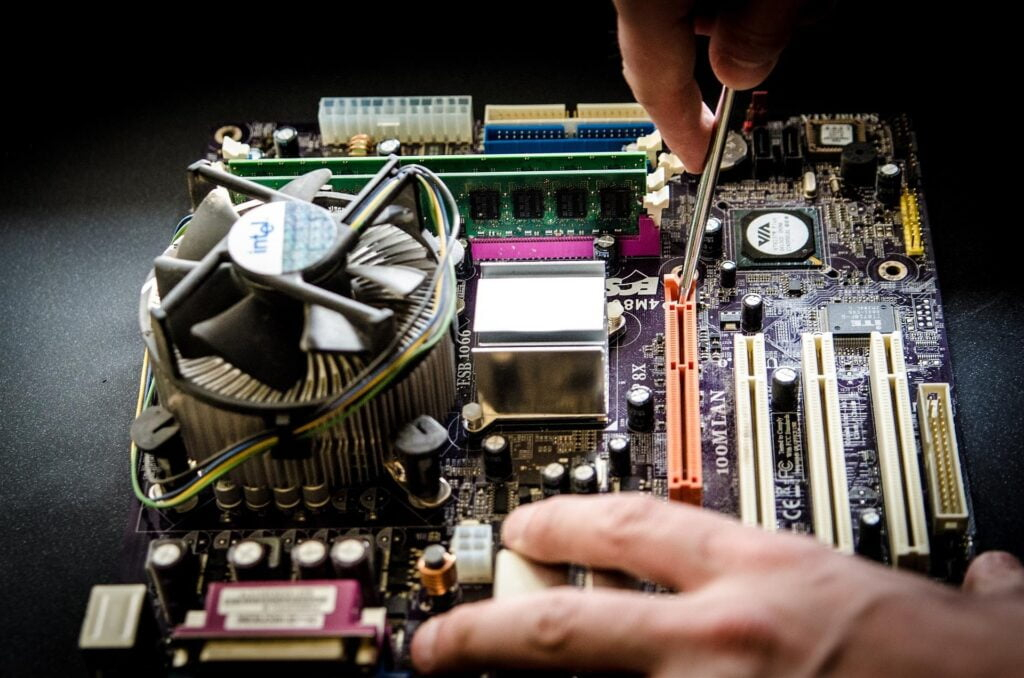
Quantum Computer Price Explained: Current Market and Future Predictions
Quantum computing is an elegant branch of computing that deploys the principles of quantum information science groundworks of area superposition and tangle. Most traditional computers work in binary, 0s and 1s, where quantum computers work with quantum bits, or ‘qubits’, giving them the ability to compute far beyond the capability of any other computer. Quantum computing has a most significant effect where vast computation powers are needed, including cryptography, pharma discovery, and modeling.
Brief History of Quantum Computers
The first ideas about the basis of quantum computing can be attributed to the first half of the 1980s, when physicist Richard Feynman suggested that purposed quantum systems could be used to model challenging physical processes more efficiently than traditional computers. Since then, researchers and technologists across the world have made efforts to bring quantum theory into reality with help of IBM, Google, Righetti and many others.
Why Quantum Computers Matter
With quantum computers, industries may stand the chance to be transformed, if not for the kinds of problems that can be solved, then for the computational achievement alone. Those that may require thousands of thousands of years to an ordinary computer may take minutes or hours to a quantum system. As per this power, it becomes possible par excellence to try out virtually everything, from creation of advanced artificial neural networks to tackling global issues like climate simulations and genomics.
Current Market Prices of Quantum Computers
Factors Influencing Quantum Computer Prices
The quantum computer price depends on several factors, including:
- Qubit Count: More qubits give the machine more power in terms of calculation, and the more complicated, the higher the price.
- Hardware Quality: A need for high-quality components, especially those used in stabilizing and manipulating qubits, increases costs.
- Maintenance Needs: Quantum computers have restricted operational conditions, that is, they need to be maintained in certain conditions, like extreme low temperatures; they make high expenses on maintenance.
- Technological Development: Being in its infancy, the costs of developing and researching the technology is steep and contribute to the cost.
Leading Quantum Computer Manufacturers and Their Prices
- IBM: Popular through the quantum computing platform, IBM Q, they offer quantum computers through the IBM cloud for scientific and business applications.
- Google: Google has set many groundbreaking leadings with its Sycamore processor, mainly addressing several research and business purposes.
- Rigetti: Most famous for cloud quantum computing, Rigetti is the company that designs and builds quantum systems and offers cloud quantum computing services for research purposes.

They vary greatly; for example, cloud-accessible quantum computing can cost a few hundred dollars per hour, while onsite quantum computation systems, built for a particular purpose, cost anything from tens of millions to a hundred million dollars.
Quantum Computer Price Breakdown
Quantum computers come with multiple cost layers, impacting their overall price:
Hardware Costs
quantum computer has even more complex materials and engineering compared with the conventional one. Analogous to scaling, qubit stability is achieved by implementing complex structures such as superconducting circuits, optical traps, and cryogenic cooling, enhancing initial capital expenses.
Software and Licensing Costs
Quantum software development is important as it also helps in the execution of quantum functions. Python programming is commonly used in current quantum software and platforms while primarily designed for specific manufacturers’ machines (e.g., Qiskit for IBM quantum computing systems), and its licensing is based on the platform and the software type.
This means the operational and maintenance costs are lower for IFC when compared to both the base case converse and median converse plants.
These superposition computers demand highly isolated environments, sometimes in a cryogenic condition with different shielding from any radiation. Such systems must be kept functional; therefore, they constitute the recurring costs of any facility.
Comparing Quantum Computers with Traditional Computers
Processing Power and Speed
Quantum computers provide certain kinds of high-data problems more effectively than traditional computers, such as modelling and simulation problems. As the orders of magnitude required for computation increase, a quantum computer packs an exponential punch and punch.
Energy Consumption
It is found that for high-complexity work, quantum computers could possibly even use less power than the classical supercomputers because separate units of the quantum computer can work on separate pieces of information.
Pricing Comparison Over Time
Mainstream computers have decreased in price, while quantum computers are relatively expensive as a technology forty years old. But as quantum technology picks up, the costs are likely to come down.
Pros and Cons of Investing in Quantum Computers
Advantages of Quantum Computing
- High Processing Power: Excellent for all the tough calculations that may be involved in different situations.
- Revolutionary for Industries: Brings new opportunities in shaping, for instance, healthcare, finance industries and many others.
- Enhanced Security: There is information that usage of quantum encryption methods may lead to an increase in reliability of data.
Challenges and Limitations
- High Costs: At the moment, he adds, the technology is still out of reach for most organizations financially.
- Technical complexity: needs professional expertise and attention all the time.
- Limited Application: Beneficial in usage where computations require a distinct set of operations involving large amounts of data.
The Role of Quantum Computing in Modern Software Development
Quantum Computing and Artificial Intelligence
- Quantum computing could improve AI models by delivering better precision in various calculations, where quantum computing speed and power contribute immensely to faster machine learning and enhanced neural network simulations.
- Consequences for Data Security and Cryptography
- Quantum computers bring new strategies in cryptography, which will improve protection of data and will develop the new sector in protecting information.
- Integration with Cloud Computing
- Vendors also provide clients names with quantum computing as a service where users can run quantum algorithms with quantum hardware without directly purchasing hardware.
Factors to Consider Before Buying a Quantum Computer
Budgeting and Financial Planning
As a result, any company thinking to buy or have access to a quantum computer should always consider the ROI costs.
Role/Orientation of the Quantum Computer (Commercial, Academic, Research)
It is seen that according to the research, commercial or academic project concerned and the uses of quantum computers, the choice of the machine differs.
Technical Expertise and Support
It also requires quantum computational know-how to run these machines properly; buyers should also factor in the costs of hiring or developing talent.
Future Trends in Quantum Computing Price
Expected Price Cuts with growth of technology
Quantum computing remains expensive as of now, reactors and other components needed for quantum computing are costly as of now, they will become cheaper with technological developments, and economies of scale kick in.
Evaluating the Market Requirement that Affects the Price
The need to deploy quantum computing might intensify the competition among firms in industries such as pharma and chemical, finance, and aerospace; hence, it could put downward pressure on the price of quantum computing services.
Governments and private sector funding
More funding from the government and the private sector ensures the breakthrough of technologies in the sector, hence making it easier to develop affordable quantum solutions.
Use Cases and Industry Applications of Quantum Computing
Quantum computing holds huge promises in changing industries through optimization of its potential to solve problem-intensive issues. Let’s explore some of the significant applications across various sectors:
1. Healthcare and Drug Discovery
- Drug Development: Superposition in quantum computers makes it easier to mimic molecules to a higher level of precision than would be achieved through other methods. This applies in the identification of new drugs, getting bigger and better from the remaining promising compounds for the pharma companies.
- Genomic Sequencing: Quantum algorithms can process big genetic data; therefore, they help develop individualized therapy, discovering mutations and disease biomarkers.
- Medical Imaging and Diagnosis: It has practical applicability in representing medical images and improving the possibility of their analysis via quantum computers, which may benefit diagnosis and treatment.
2. Finance and Risk Management
- Portfolio Optimization: The quantum computers can work through massive databases that can have numerous independent variables to fix optimal portfolios, to address risks within investments and to measure a reward or benefit a lot more accurately than traditional algorithms.
- Risk Analysis: Successful outcomes of the simulated market scenarios improve the risk assessment and prognosis of the financial institutions and quantum computing is a mighty tool for improving the capabilities of crisis management and investment strategies.
- Cryptocurrency Security: Since quantum computers are capable of performing the computations necessary to compromise traditional cryptographic methods, financial organizations are seeking quantum-resistant encryption to protect their information in the era of the blockchain.
3. Climate Modeling and Environmental Science
- Climate Prediction: Applying the algorithms of quantum computing, researchers can build much better climate models, considering a large number of factors in the atmosphere and forecast climate change and extreme weather conditions.
- Energy Optimization: This paper aims at demonstrating how quantum algorithms can be a valuable tool in contemporary energy grid management through resource optimization, minimizing wastage, and in integrating renewable energy sources into the energy grid efficiently.
- Carbon Capture and Materials Science: Quantum simulation helps researchers find new materials for carbon capture—critical to mitigate greenhouse gas emissions.
4. Manufacturing and Logistics
This is because the manufacturing and logistics of these computers are significant influences to their prices. While in a classical computer we can distinguish between hardware and software, in a quantum computer it is more complicated and the following components are required. It will be useful now to examine some of the features of manufacturing and logistics in more detail and how they add to the total cost.
5. Specialized Materials and Components
For quantum computing, use of qubits is employed and these can be produced in want of super conducting material, ion traps, and photon systems. Such materials call for careful engineering and addressing as they contribute to making the production expensive. In addition to this, the stability, or even coherence, of qubits necessitates further complicated structures, such as dilution refrigerators, which work well when the temperature is well below absolute zero. Many of these materials and the specific components thus form part of the initial cost.
6. Precision Engineering and Fabrication
Its development requires specific engineering skills to bear the fragility of the quantum mechanics system. Slight variations in its production result in error or absence of homogeneity in the qubits. To bring the dimensions to such accuracy demands a high level of manufacturing facility, which is costly in terms of capital investment for installation and sometimes upkeep. The processes employed are normally typical of systems that are, in most instances, state of the art, thereby calling for professional input in the design and development; this in turn increases the cost of production.
7. Environmental Control Systems
Therefore, in order to operate quantum computers, the computers have to be placed in isolation, and the environment necessarily has to be maintained—no electromagnetic radiation, no vibration, and a maintained temperature. This requires specialized laboratory infrastructure, including:
- Cryogenic Cooling Systems: To manage coherence in qubits, it has to be maintained that quantum computers are placed in conditions with temperatures close to absolute zero and require elaborate cooling systems.
- Shielding: Since quantum devices are very vulnerable to interference, shielding from electromagnetic radiation is critical. This is sometimes in the form of high-cost material and design to achieve maximum isolation.
These are not cost-effective given that they are very costly to install, and they require regular maintenance as they form part and parcel of the total costs of a machine.
8. Transportation and logistics challenges
Getting a quantum computer, especially for a long distance, is a cumbersome task because of the sensitivity of the equipment to movement, temperature fluctuations, and vibrations. Every part has to be well wrapped and handled so that it reaches the destination in good condition. To transport international quantum computers, one may require specially made transport containers with integrated cooling technology, which may be expensive, running to thousands of dollars. The operational requirements of quantum computing are so versatile that some businesses, rather than move their machines around, decide to grant access to the actual machines over the Internet.
9. Skilled Workforce and Research Expenses
The field of quantum computing remains niche, as there are only a select number of people who can actually construct, program and maintain the systems. Training and recruitment of personnel, in addition to cost of wages, contribute to additional expenses, while constant analysis in the advancement of quantum technology results into many more expenses. Businesses spend huge amounts on research and development to invent new products and protect market share, and quantum computers bear in their cost.
National Security and Defense
- Cryptography: Encryption technology in quantum cryptography is more developed to preserve security in military and defense communication.
- Cybersecurity: States are funding quantum technology research to mitigate quantum-related cybersecurity risks in anticipation of when quantum processors undermine current encryption.
- Simulations and Training: The benefits of quantum computing are the possibility of realistic simulations in training programs as well as to model scenarios when training defense agencies.
The Future of Quantum Computing Pricing and Accessibility
If one considers developments in quantum computing technology, the cost of hardware should decrease while the cost required to access quantum computing service should also reduce. Market information reveals that as development generates more consistent qubits and good algorithms, there will be competitive pricing of the quantum computers.
Government and Private Sector Investment Importance
IT companies including Google, IBM and Amazon have started investing in this technology, while governments across the world are backing research that aims at fast-tracking this technology. These investments have been directed towards research as well as development of affordable quantum computing environments, which may consequently result in low prices in the future.
Quantum Computing as a Service (QCaaS)
One of the breakout technologies currently available is Quantum Computing as a Service (QCaaS), which delivers quantum computing ability through the cloud and assists users to experiment with quantum algorithms with no immediate need of actual quantum hardware. More and more companies, such as IBM and Microsoft, are now stepping up their QCaaS services, which enable those businesses to access a quantum computer and quantum resources for a much lower price than the direct procurement of a quantum computer.
Summary
Of particular requisite, quantum computing is still an emerging concept that holds potential in changing most industries and solving problems that cannot be solved with the aid of present-day computers. But for now, the current price of quantum computing is still high in terms of its operating system, the necessary and required hardware, maintenance costs, and a possible limited number of experts. For now, most businesses have little choice but to look to QCaaS instead of buying quantum computers outright.
Quantum computing is still expensive, but the key is that it is the only computing technology designed to solve problems in drug discovery, finance, environment, and much more. Finally, it appears to be quite promising and sooner or later is likely to become the mass application tool for innovation and improvement across most industries. For any company or research centre interested in the prospect of the future of technology, quantum computing is a solution to problems not possible with current technological advancements.




